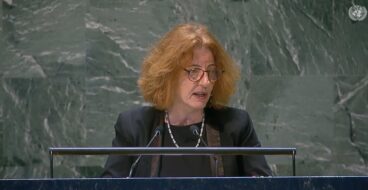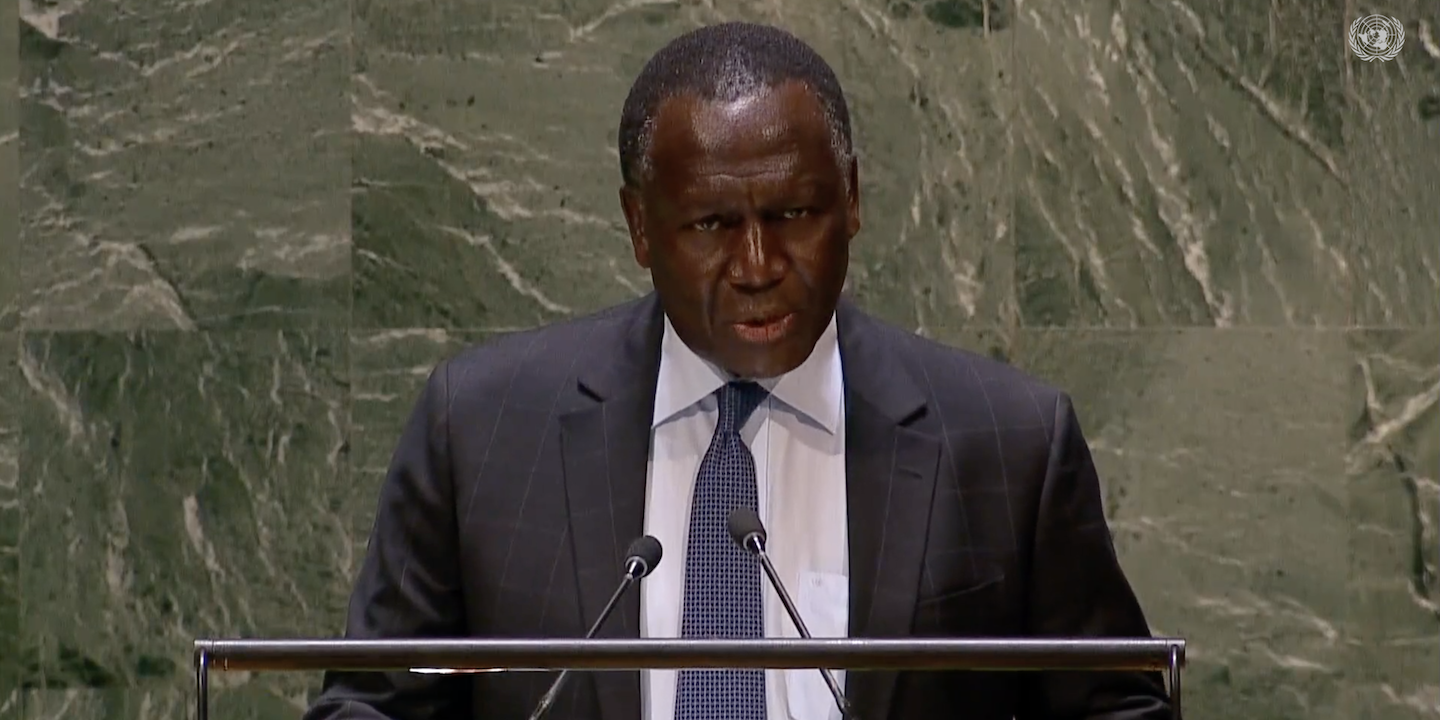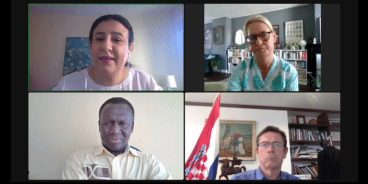

Statement by the UN Special Adviser on R2P at the 2023 UN General Assembly Debate on R2P
General Assembly 77th Session, Agenda items 130, 120 and 132, Monday 26 June 2023
Introductory remarks by George Okoth-Obbo, Secretary-General’s Special Adviser on the Responsibility to Protect.
In introducing this year’s report on the Responsibility to Protect, I very much welcome this debate of the General Assembly on the Responsibility to Protect.
Every year, the debate provides a poignant moment for us to reflect on the cardinal political and moral commitment the world made 18 years ago to ensure that the contagion of mass atrocities would never again mark humanity.
The debate is particularly evocative this year in which countless civilians continue to be caught in situations of conflict, violence and egregious human rights violations which may amount to genocide, war crimes, crimes against humanity and ethnic cleansing. R2P thus remains as imperative today as when the world resounded “Never Again” at the World Summit in 2005.
The keystone of R2P is, as has been underlined so many times is prevention. At the same time, to craft and deliver solutions that are effective for this purpose, it is crucial that the root causes, risks, triggers and multipliers of atrocity crimes are properly discerned.
The report I am presenting for the debate today explores a relationship that was recognized as crucial from the very inception of the conceptualization of the Responsibility to Protect, the intersection between development and R2P.
Drawing on the foundational objectives of the SDGs, the report underlines that development can build the conditions for sustainable peace, equitable growth and accountable governance and thereby cement the prospects for realizing the fundamental purposes and objectives of the Responsibility to Protect.
On the other hand, it is highlighted that in underdevelopment, poverty and societal inequalities, food insecurity, stressors on social resilience, governance, institutional and accountability failures, discrimination, violations and abuses of human rights and conflict can be rooted signal risk factors, drivers and multipliers of atrocity crimes. The particular ways in which these problematics, risks and occurrences are articulated are examined at national and global levels and in relation to the United Nations and, in those contexts, ways are advanced in which development can be leveraged to avoid, diminish or efface them.
Excellencies, Distinguished delegates. Ladies and gentlemen,
Most crucially, the report calls particularly on States to comprehensively recognize, own and commit political will as a whole – of – government enterprise to the intersection between the Responsibility to Protect and sustainable development and to leverage development policies, strategies and programmes across the spectrum of atrocity risk assessment, early warning, preparedness and response to avoid, reduce or mitigate these risks and occurrences.
There are particular calls in relation to bilateral and multilateral development partnerships and cooperation, including international financial institutions, which, when they do not give regard to the R2P dimensions, can not only fail to notice and attend to atrocity risks or occurrences, but even potentially enabled them.
As for the United Nations, the report looks forward to the continuation of deliberations on the role of development in the prevention of genocide, war crimes, ethnic cleansing, and crimes against humanity and the enhancement of the contribution of the relevant UN Departments, Agencies, Funds and Programmes to early warning and the prevention of mass atrocities.
Across all these efforts, the inclusion and agency of civil society, faith communities, traditional leaders, minority groups including indigenous populations, women, children and youth, the media, and other locally-based actors is fully recognized and underlined.
Mr. President Excellencies, Distinguished delegates. Ladies and gentlemen,
No doubt, not all the questions and indeed recommendations posed in the development – R2P intersection, lend themselves to easy interpretations or simple conclusions. The subject is however one on which every state has both historical and real time experience. There is thus a lot to share, and it will be important to hear the perspectives, experiences, challenges, good practices and indeed even concerns of States on these questions and propositions and hope that some key convergences can be discerned on the way forward to optimize and maximize the development agenda in the context of R2P, in other words, how to realize the interconnection the report urges in predictable, concrete terms.
The views of States on that way forward, about how the ideas and questions contained in the report can be carried forward or leveraged to related agendas and initiatives – Climate change, human rights, governance and accountability, conflict resolution and peace-building – both within the United Nations and indeed in other regional and national contexts, as well as on questions in the broader R2P landscape will also be important to hear.
Excellencies, Distinguished delegates. Ladies and gentlemen,
I stated at the beginning of my remarks that this annual debate is a reminder to us not to drift from our commitment, our duty, our responsibility to protect. It is a reminder which should ring even more keenly in this year which marks the 75th Anniversaries of, respectively, the Universal Declaration of Human Rights and the Convention on the Prevention and Punishment of the Crime of Genocide.
The lives of millions depend on that responsibility being given meaning. Let us today, in the context of the relationship between development and the Responsibility to Protect, catalyze every thought, idea and way forward we could advance to help build a more prosperous world for all free from the risks or actualities of mass atrocities.
Thank you.
Related Content


Statement by the UN Special Adviser on R2P at the 2024 UN General Assembly Debate on R2P
